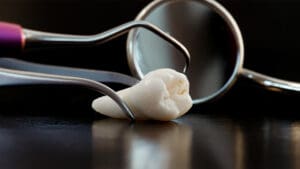
Check Out These Tips to Help Handle Dental Anxiety
Whether you’re on vacation or back to school, a dentist appointment can be a dreaded experience for some. You may not have experienced severe anxiety

Whether you’re on vacation or back to school, a dentist appointment can be a dreaded experience for some. You may not have experienced severe anxiety

Dentist Near Me Let’s not forget our dental health resolutions so that we don’t have to search online with the term “dentist near me” for

Dentist in Northampton Dentist in Northampton | Whether you were in between dentists, without dental insurance, or just busy meeting other obligations, it may have

Northampton Dentist Northampton Dentist | Sometimes it comes down to the basics. Even though there are a variety of dental treatments and procedures available, they

Dental crowns are artificial caps that are placed on top of a tooth that has been damaged or stained. Crowns are also commonly used during the placement of dental implants to provide a natural-looking treatment that can absorb normal biting and chewing force.
Some reasons why you may need a dental crown include:
• Repairing a worn down or broken tooth
• Repairing and covering a tooth after a root canal procedure
• As part of a dental bridge
• To cap a dental implant
• For covering poorly shaped or discolored teeth
Getting a Dental Crown
If you are getting a dental crown, your dentist will begin by examining your tooth and taking x-rays to look for cavities and to visualize the tooth root structure. They will then file down your tooth after you have received local anesthesia.
If necessary, your dentist will be taking impressions of your tooth to be sent to a dental lab, which will custom craft your new crown.
When your crown is ready, you will return for another appointment. Your dentist will be checking to ensure that your crown has the correct color and fit. They will then permanently cement it into place.
Types of Dental Crowns
There are several different types of dental crowns available. The type that works best for you can be determined at your initial consultation.
Porcelain-Fused-to-Metal (PFM)
Porcelain-fused-to-metal (PFM) is the type most often used for patients. These crowns can be tooth-colored and are highly durable, as well as reasonably priced. PFM crowns are most often used for back teeth since their metal base offers strength that can withstand biting and chewing force.
One drawback of PFM crowns is that it is sometimes possible for others to see them in full natural light. Also, if the gums should recede, the metal base will be visible in the form of a dark line.
Various types of metallic alloys are used to construct PFM crowns. Types incorporating precious metals are more expensive than conventional alloys.
Full Porcelain or Ceramic
The advantage of these types of crowns is that they offer the most natural aesthetic appearance. They are also a great choice for anyone with metal allergies. Full porcelain or ceramic is most frequently used for highly visible front teeth.
One drawback of porcelain or ceramic crowns is that they are not as durable as the PFM variety, and are more expensive.
Zirconia Crowns
Zirconia is the strongest type of available crown, with an outstanding natural appearance when compared to full porcelain or ceramic. They also cost more than other types of crowns, but if you want a virtually indestructible dental crown that can be used both for rear and front teeth, they make a good choice. Since zirconia is stronger, it also involves less tooth structure removal than other types of crowns because the material can be thinner.
Crown Durability

Dental crowns are artificial caps that are placed on top of a tooth that has been damaged or stained. Crowns are also commonly used during the placement of dental implants to provide a natural-looking treatment that can absorb normal biting and chewing force.
Some reasons why you may need a dental crown include:
• Repairing a worn down or broken tooth
• Repairing and covering a tooth after a root canal procedure
• As part of a dental bridge
• To cap a dental implant
• For covering poorly shaped or discolored teeth
Getting a Dental Crown
If you are getting a dental crown, your dentist will begin by examining your tooth and taking x-rays to look for cavities and to visualize the tooth root structure. They will then file down your tooth after you have received local anesthesia.
If necessary, your dentist will be taking impressions of your tooth to be sent to a dental lab, which will custom craft your new crown.
When your crown is ready, you will return for another appointment. Your dentist will be checking to ensure that your crown has the correct color and fit. They will then permanently cement it into place.
Types of Dental Crowns
There are several different types of dental crowns available. The type that works best for you can be determined at your initial consultation.
Porcelain-Fused-to-Metal (PFM)
Porcelain-fused-to-metal (PFM) is the type most often used for patients. These crowns can be tooth-colored and are highly durable, as well as reasonably priced. PFM crowns are most often used for back teeth since their metal base offers strength that can withstand biting and chewing force.
One drawback of PFM crowns is that it is sometimes possible for others to see them in full natural light. Also, if the gums should recede, the metal base will be visible in the form of a dark line.
Various types of metallic alloys are used to construct PFM crowns. Types incorporating precious metals are more expensive than conventional alloys.
Full Porcelain or Ceramic
The advantage of these types of crowns is that they offer the most natural aesthetic appearance. They are also a great choice for anyone with metal allergies. Full porcelain or ceramic is most frequently used for highly visible front teeth.
One drawback of porcelain or ceramic crowns is that they are not as durable as the PFM variety, and are more expensive.
Zirconia Crowns
Zirconia is the strongest type of available crown, with an outstanding natural appearance when compared to full porcelain or ceramic. They also cost more than other types of crowns, but if you want a virtually indestructible dental crown that can be used both for rear and front teeth, they make a good choice. Since zirconia is stronger, it also involves less tooth structure removal than other types of crowns because the material can be thinner.
Crown Durability

Dental crowns are artificial caps that are placed on top of a tooth that has been damaged or stained. Crowns are also commonly used during the placement of dental implants to provide a natural-looking treatment that can absorb normal biting and chewing force.
Some reasons why you may need a dental crown include:
• Repairing a worn down or broken tooth
• Repairing and covering a tooth after a root canal procedure
• As part of a dental bridge
• To cap a dental implant
• For covering poorly shaped or discolored teeth
Getting a Dental Crown
If you are getting a dental crown, your dentist will begin by examining your tooth and taking x-rays to look for cavities and to visualize the tooth root structure. They will then file down your tooth after you have received local anesthesia.
If necessary, your dentist will be taking impressions of your tooth to be sent to a dental lab, which will custom craft your new crown.
When your crown is ready, you will return for another appointment. Your dentist will be checking to ensure that your crown has the correct color and fit. They will then permanently cement it into place.
Types of Dental Crowns
There are several different types of dental crowns available. The type that works best for you can be determined at your initial consultation.
Porcelain-Fused-to-Metal (PFM)
Porcelain-fused-to-metal (PFM) is the type most often used for patients. These crowns can be tooth-colored and are highly durable, as well as reasonably priced. PFM crowns are most often used for back teeth since their metal base offers strength that can withstand biting and chewing force.
One drawback of PFM crowns is that it is sometimes possible for others to see them in full natural light. Also, if the gums should recede, the metal base will be visible in the form of a dark line.
Various types of metallic alloys are used to construct PFM crowns. Types incorporating precious metals are more expensive than conventional alloys.
Full Porcelain or Ceramic
The advantage of these types of crowns is that they offer the most natural aesthetic appearance. They are also a great choice for anyone with metal allergies. Full porcelain or ceramic is most frequently used for highly visible front teeth.
One drawback of porcelain or ceramic crowns is that they are not as durable as the PFM variety, and are more expensive.
Zirconia Crowns
Zirconia is the strongest type of available crown, with an outstanding natural appearance when compared to full porcelain or ceramic. They also cost more than other types of crowns, but if you want a virtually indestructible dental crown that can be used both for rear and front teeth, they make a good choice. Since zirconia is stronger, it also involves less tooth structure removal than other types of crowns because the material can be thinner.
Crown Durability

Dental crowns are artificial caps that are placed on top of a tooth that has been damaged or stained. Crowns are also commonly used during the placement of dental implants to provide a natural-looking treatment that can absorb normal biting and chewing force.
Some reasons why you may need a dental crown include:
• Repairing a worn down or broken tooth
• Repairing and covering a tooth after a root canal procedure
• As part of a dental bridge
• To cap a dental implant
• For covering poorly shaped or discolored teeth
Getting a Dental Crown
If you are getting a dental crown, your dentist will begin by examining your tooth and taking x-rays to look for cavities and to visualize the tooth root structure. They will then file down your tooth after you have received local anesthesia.
If necessary, your dentist will be taking impressions of your tooth to be sent to a dental lab, which will custom craft your new crown.
When your crown is ready, you will return for another appointment. Your dentist will be checking to ensure that your crown has the correct color and fit. They will then permanently cement it into place.
Types of Dental Crowns
There are several different types of dental crowns available. The type that works best for you can be determined at your initial consultation.
Porcelain-Fused-to-Metal (PFM)
Porcelain-fused-to-metal (PFM) is the type most often used for patients. These crowns can be tooth-colored and are highly durable, as well as reasonably priced. PFM crowns are most often used for back teeth since their metal base offers strength that can withstand biting and chewing force.
One drawback of PFM crowns is that it is sometimes possible for others to see them in full natural light. Also, if the gums should recede, the metal base will be visible in the form of a dark line.
Various types of metallic alloys are used to construct PFM crowns. Types incorporating precious metals are more expensive than conventional alloys.
Full Porcelain or Ceramic
The advantage of these types of crowns is that they offer the most natural aesthetic appearance. They are also a great choice for anyone with metal allergies. Full porcelain or ceramic is most frequently used for highly visible front teeth.
One drawback of porcelain or ceramic crowns is that they are not as durable as the PFM variety, and are more expensive.
Zirconia Crowns
Zirconia is the strongest type of available crown, with an outstanding natural appearance when compared to full porcelain or ceramic. They also cost more than other types of crowns, but if you want a virtually indestructible dental crown that can be used both for rear and front teeth, they make a good choice. Since zirconia is stronger, it also involves less tooth structure removal than other types of crowns because the material can be thinner.
Crown Durability

Dental crowns are artificial caps that are placed on top of a tooth that has been damaged or stained. Crowns are also commonly used during the placement of dental implants to provide a natural-looking treatment that can absorb normal biting and chewing force.
Some reasons why you may need a dental crown include:
• Repairing a worn down or broken tooth
• Repairing and covering a tooth after a root canal procedure
• As part of a dental bridge
• To cap a dental implant
• For covering poorly shaped or discolored teeth
Getting a Dental Crown
If you are getting a dental crown, your dentist will begin by examining your tooth and taking x-rays to look for cavities and to visualize the tooth root structure. They will then file down your tooth after you have received local anesthesia.
If necessary, your dentist will be taking impressions of your tooth to be sent to a dental lab, which will custom craft your new crown.
When your crown is ready, you will return for another appointment. Your dentist will be checking to ensure that your crown has the correct color and fit. They will then permanently cement it into place.
Types of Dental Crowns
There are several different types of dental crowns available. The type that works best for you can be determined at your initial consultation.
Porcelain-Fused-to-Metal (PFM)
Porcelain-fused-to-metal (PFM) is the type most often used for patients. These crowns can be tooth-colored and are highly durable, as well as reasonably priced. PFM crowns are most often used for back teeth since their metal base offers strength that can withstand biting and chewing force.
One drawback of PFM crowns is that it is sometimes possible for others to see them in full natural light. Also, if the gums should recede, the metal base will be visible in the form of a dark line.
Various types of metallic alloys are used to construct PFM crowns. Types incorporating precious metals are more expensive than conventional alloys.
Full Porcelain or Ceramic
The advantage of these types of crowns is that they offer the most natural aesthetic appearance. They are also a great choice for anyone with metal allergies. Full porcelain or ceramic is most frequently used for highly visible front teeth.
One drawback of porcelain or ceramic crowns is that they are not as durable as the PFM variety, and are more expensive.
Zirconia Crowns
Zirconia is the strongest type of available crown, with an outstanding natural appearance when compared to full porcelain or ceramic. They also cost more than other types of crowns, but if you want a virtually indestructible dental crown that can be used both for rear and front teeth, they make a good choice. Since zirconia is stronger, it also involves less tooth structure removal than other types of crowns because the material can be thinner.
Crown Durability